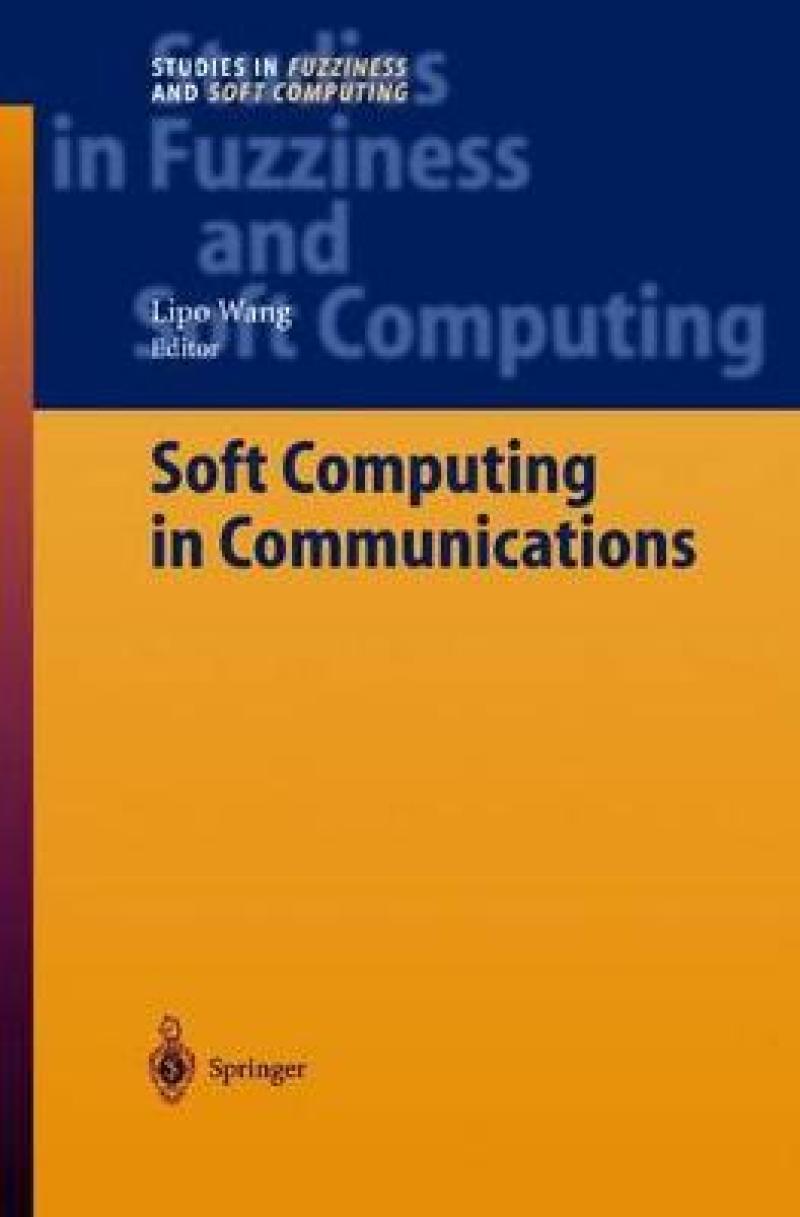Soft computing, as opposed to conventional "hard" computing, tolerates imprecision and uncertainty, in a way very much similar to the human mind. Soft computing techniques include neural networks, evolutionary computation, fuzzy logic, and chaos. The recent years have witnessed tremendous success of these powerful methods in virtually all areas of science and technology, as evidenced by the large numbers of research results published in a variety of journals, conferences, as weil as many excellent books in this book series on Studies in Fuzziness and Soft Computing. This volume is dedicated to recent novel applications of soft computing in communications. The book is organized in four Parts, i.e., (1) neural networks, (2) evolutionary computation, (3) fuzzy logic and neurofuzzy systems, and (4) kernel methods. Artificial neural networks consist of simple processing elements called neurons, which are connected by weights that may be adjusted during learning. Part 1 of the book has seven chapters, demonstrating some of the capabilities of two major types of neural networks, i.e., multiplayer perceptron (MLP) neural networks and Hopfield-type neural networks.
Les mer
Soft computing, as opposed to conventional "hard" computing, tolerates imprecision and uncertainty, in a way very much similar to the human mind. Part 1 of the book has seven chapters, demonstrating some of the capabilities of two major types of neural networks, i.e., multiplayer perceptron (MLP) neural networks and Hopfield-type neural networks.
Les mer
1: Neural Networks.- Neural Approximation of Resource Allocation Functions in Multiservice Access Multiplexers.- Performance of the Multilayer Perceptron-based Decision Feedback Equalizer with Lattice Structure in Non-Linear Channels.- Nonlinear Channel Identification Using Natural Gradient Descent: Application to Modeling and Tracking.- Maximizing Topology Connectivity Using a Hopfield Neural Network.- Binary Neural Network Approaches to Combinatorial Optimization Problems in Communication Networks.- Robust Multiuser Detection Using Artificial Neural Networks.- Minimizing Interference in Cellular Mobile Communications by Optimal Channel Assignment Using Chaotic Simulated Annealing.- 2: Evolutionary Computation.- Orthogonal Genetic Algorithms with Application to Multimedia Multicast Routing ..- Solving the QoS Multicast Routing Problems Using Genetic Algorithms.- Base Station Location Optimization in Cellular Wireless Networks using Heuristic Search Algorithms.- The Synthesis and Design of Communication Antennas Using Genetic Algorithms.- 3: Fuzzy Logic and Neurofuzzy Systems.- QoS Adaptation Based on Fuzzy Theory.- Fuzzy Chaotic Synchronization and Communication — Signal Masking Encryption.- Intelligent Channel Assignment Schemes for Hierarchical Cellular Systems.- A New Mobility Prediction System using Neuro-Fuzzy Model and Its Application to Restoration of Mobility Databases.- Voice Over Wireless LAN Using Intelligent Control.- 4: Kernel Methods.- Least Squares Kernel Methods and Applications.- Least Bit Error Rate Adaptive Multiuser Detection.
Les mer
This book is dedicated to recent novel applications of soft computing in communications. It presents the methodologies of neural networks, evolutionary computation, fuzzy logic and neurofuzzy systems, and kernel methods. Applications to the wide field of communications are demonstrated, such as to multiservice access multiplexers, hierarchical cellular systems, multicast routing, optimal channel assignment to cellular mobile communications, transporting voice over a wireless LAN, or the design of communication antennas.
Les mer
Presents novel applications of soft computing to telecommunications
Produktdetaljer
ISBN
9783540405757
Publisert
2003-09-05
Utgiver
Vendor
Springer-Verlag Berlin and Heidelberg GmbH & Co. K
Høyde
235 mm
Bredde
155 mm
Aldersnivå
Research, G, U, 01, 05
Språk
Product language
Engelsk
Format
Product format
Innbundet
Redaktør
